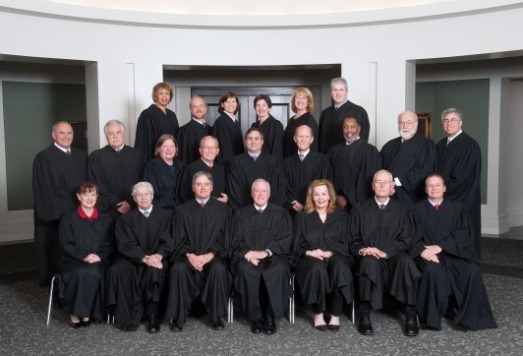Purpose is Juvenile Rehabilitation or White Supremacy? Michigan court rules ban on life without parole for minors does not apply retroactively - 74% Non-White
/Today a record number of people are serving juvenile life without parole (JLWOP) sentences in the U.S. for crimes committed before their 18th birthday. Sentences of life without parole are often erroneously believed to translate to a handful of years in prison followed by inevitable release. The reality is that a life without parole sentence means that the individual will die in prison. [MORE] Too many are non-white. Many juvenile lifers in Michigan have already served decades in prison. Two-thirds are African-American. [MORE] 74% of them are persons of color.[MORE] Nationally, the racial dynamics of victims and offenders may play a key role in determining which offenders are sentenced to juvenile life without parole
* The proportion of African Americans serving JLWOP sentences for the killing of a white person (43.4%) is nearly twice the rate at which African American juveniles are arrested for taking a white person’s life (23.2%);
* Conversely, white juvenile offenders with black victims are only about half as likely (3.6%) to receive a JLWOP sentence as their proportion of arrests for killing blacks (6.4%). [MORE]
 From [HERE] and [HERE] The Michigan Court of Appeals (pictured in top photo, a group of white folks) ruled [PDF] Friday that the US Supreme Court decision in Miller v. Alabama [PDF; report], which held that sentencing minors to life without parole constitutes cruel and unusual punishment under the Eighth Amendment [text], will not apply retroactively. The appeals court ruled that the Supreme Court decision "is not to be applied retroactively to cases on collateral review ... because the decision is procedural and not substantive in nature." The court also urged Michigan's legislature to bring the state's laws into compliance with the Miller ruling, noting that in Miller, a juvenile is defined as under the age of 18, but in Michigan a juvenile is defined as under the age of 17. Michigan is among the top states for sentencing of minors to life without the possibility of parole, with more than 350 people currently serving life sentences without the possibility for parole for crimes committed in their youth. In photo, Attorney General Bill Schuette, a racist suspect, who hailed the appeals court ruling as a victory. [MORE]. Schuette also recently vowed to go to the U.S. Supreme Court in reaction to a ruling overturning Michigan's 6-year-old ban against affirmative action.
From [HERE] and [HERE] The Michigan Court of Appeals (pictured in top photo, a group of white folks) ruled [PDF] Friday that the US Supreme Court decision in Miller v. Alabama [PDF; report], which held that sentencing minors to life without parole constitutes cruel and unusual punishment under the Eighth Amendment [text], will not apply retroactively. The appeals court ruled that the Supreme Court decision "is not to be applied retroactively to cases on collateral review ... because the decision is procedural and not substantive in nature." The court also urged Michigan's legislature to bring the state's laws into compliance with the Miller ruling, noting that in Miller, a juvenile is defined as under the age of 18, but in Michigan a juvenile is defined as under the age of 17. Michigan is among the top states for sentencing of minors to life without the possibility of parole, with more than 350 people currently serving life sentences without the possibility for parole for crimes committed in their youth. In photo, Attorney General Bill Schuette, a racist suspect, who hailed the appeals court ruling as a victory. [MORE]. Schuette also recently vowed to go to the U.S. Supreme Court in reaction to a ruling overturning Michigan's 6-year-old ban against affirmative action.
In October Human Rights Watch (HRW) [advocacy website] wrote a letter to Pennsylvania Governor Tom Corbett asking him to veto [JURIST report] legislation [SB 850 text] which would maintain the sentence of life without parole as an option for child offenders. According to HRW, the bill would go against the spirit of the recent US Supreme Court ruling in Miller. In June the US Supreme Court ruled 5-4 in two combined cases, Miller v. Alabama and Jackson v. Hobbs [SCOTUS backgrounders] that mandatory life sentences for juveniles violate the Eighth Amendment. The decision has been seen by many as an important step toward restoring principles of rehabilitationism [JURIST op-ed] to a system that, over the last 20 years, has come almost entirely unmoored from its ideological foundations. Some observers have argued that the reasoning the court used in this case could easily be extended [JURIST op-ed] in the future to abolish life in prison without the possibility of parole sentences for all juvenile homicide cases.































































































































































































































































































